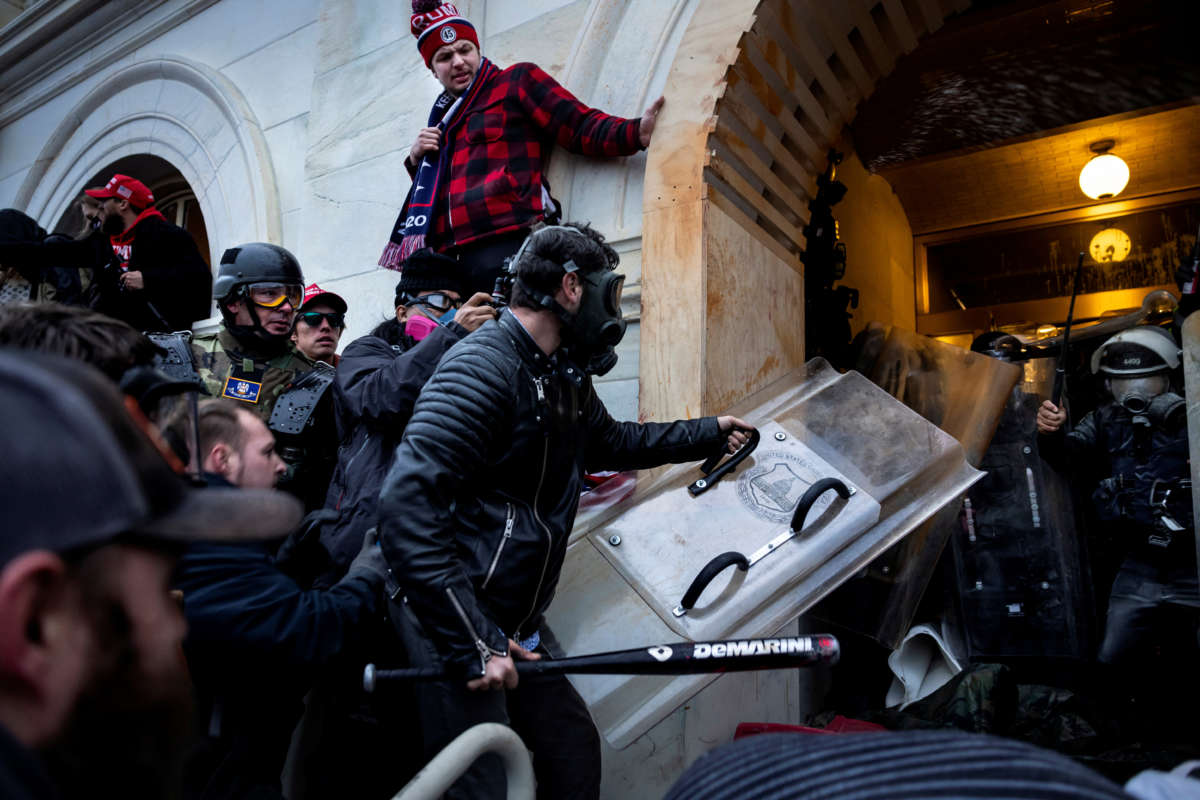Truthout is an indispensable resource for activists, movement leaders and workers everywhere. Please make this work possible with a quick donation.
A broad new investigation into the federal government’s response to the January 6 mob attack on the U.S. Capitol is afoot. Democratic House leaders from seven different committees have sent 16 letters to agencies and officials across the federal government requesting detailed records of communications from Trump administration officials and others from both before and after the Capitol breach.
The committees are requesting all materials relating to the certification process of the Electoral College, discussions of Trump loyalists’ plans leading up to the mob attack, and communications in the wake of the violence.
“Should the documents make their way into public view, communications by those employees could be monumental,” writes Whitney Wild on CNN. “Little is known about the Trump White House’s intentions and expectations for January 6 … or the internal discussions about the aftermath of the insurrection.”
Shortly after reports about the House leaders’ requests started circulating on Thursday, Fox News aired a new interview in which former President Donald Trump sought to vastly minimize the violence that took place on January 6 after loyalist participants in the rally he had spoken at went on to break into the Capitol.
Arguing that there was “zero threat” from his supporters when they descended upon the Capitol building, Trump added, “Look, they went in, they shouldn’t have done it. Some of them went in, and they are hugging and kissing the police and the guards, you know, they had great relationships. A lot of the people were waved in, and then they walked in and they walked out.”
In reality, several individuals were injured and five people died as a result of the mob of Trump loyalists breaking into the building on the day that Congress was convened to certify the results of the 2020 presidential election, which President Joe Biden had won. During the attack, dozens of his supporters engaged in chants calling for the killing of elected officials, including Trump’s then-Vice President Mike Pence and House Speaker Nancy Pelosi.
Trump was impeached by the House of Representatives in January, while he was still president, for his role in inciting the mob of his supporters to go to the Capitol after wrongly insisting that the election had been stolen. Although a majority of senators voted for his indictment, he was eventually acquitted in the Senate trial.
Hundreds of participants of the Capitol breach have been charged by the Justice Department, including dozens who are accused of conspiracy to interfere in the certification process.
Pelosi has been trying to create a bipartisan 9/11-style investigation of the Capitol breach within Congress, but thus far her effort has not come to fruition.
Earlier this week, Pelosi suggested that Republican leaders, including Minority Leader Sen. Mitch McConnell (R-Kentucky) had been receptive to the idea of a commission. But that changed after he made an appearance on the Senate floor decrying the idea.
“When I asked him if he was serious about wanting to do this he said, ‘Yes, it depends on the scope,’ and I said, ‘Well let’s discuss that,'” Pelosi said at a press conference on Thursday. “The next morning he went to the floor and just dumped all over — forgive my crudeness — the fact that we would be investigating January 6.”
In this context, the record requests sent by seven House committees on Thursday signal House Democrats’ interest in pushing forward with a more sweeping investigation, whether or not their Republican colleagues will agree to a bipartisan inquiry.
Most Americans believe that Trump bears much of the responsibility for what happened on January 6. An Economist/YouGov poll from early February noted that, when asked whether Trump bore “some” or “a lot” of responsibility for the attack of the Capitol, 51 percent of respondents answered in the affirmative, while just 40 percent said he only had “a little” or no responsibility for the events of that day.
A terrifying moment. We appeal for your support.
In the last weeks, we have witnessed an authoritarian assault on communities in Minnesota and across the nation.
The need for truthful, grassroots reporting is urgent at this cataclysmic historical moment. Yet, Trump-aligned billionaires and other allies have taken over many legacy media outlets — the culmination of a decades-long campaign to place control of the narrative into the hands of the political right.
We refuse to let Trump’s blatant propaganda machine go unchecked. Untethered to corporate ownership or advertisers, Truthout remains fearless in our reporting and our determination to use journalism as a tool for justice.
But we need your help just to fund our basic expenses. Over 80 percent of Truthout’s funding comes from small individual donations from our community of readers, and over a third of our total budget is supported by recurring monthly donors.
Truthout has launched a fundraiser to add 500 new monthly donors in the next 10 days. Whether you can make a small monthly donation or a larger one-time gift, Truthout only works with your support.
